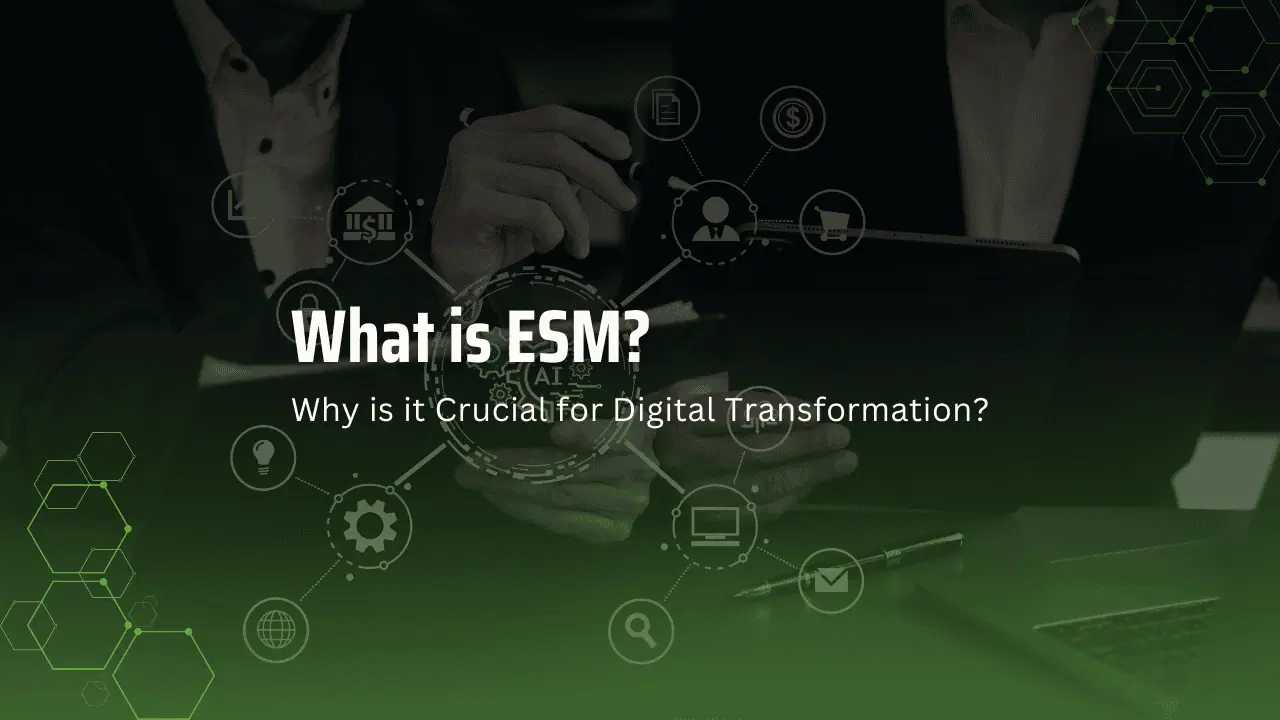In today’s fast-evolving digital landscape, organizations face increasing pressure to deliver seamless, reliable, and efficient IT services. IT Service Management (ITSM) emerges as the backbone of such efforts, streamlining how IT services are designed, delivered, managed, and improved. But what exactly is ITSM, and why does it play such a pivotal role in an organization’s digital transformation journey? Let’s delve deeper.
Understanding ITSM
ITSM is a structured approach to managing IT services. It focuses on aligning IT processes and services with business objectives, ensuring that IT effectively supports organizational goals. ITSM is not just about technology; it’s about providing value to users through well-defined processes and continuous service improvement.
The core components of ITSM typically include:
- Incident Management: Ensuring swift resolution of IT issues to minimize downtime.
- Problem Management: Identifying and addressing the root causes of recurring issues.
- Change Management: Enabling smooth transitions during IT system updates or changes.
- Asset and Configuration Management: Tracking and managing IT assets and their configurations.
- Service Level Management: Ensuring agreed-upon service standards are consistently met.
Frameworks like ITIL (Information Technology Infrastructure Library) often guide ITSM practices, offering a set of best practices for IT service management.
ITSM and Digital Transformation: The Connection
Digital transformation involves leveraging digital technologies to create or modify business processes, culture, and customer experiences to meet changing market demands. ITSM ensures that IT services—the foundation of any digital transformation initiative—are robust, scalable, and aligned with strategic objectives.
Here’s how ITSM empowers digital transformation:
- Enhanced Service Delivery: By streamlining IT operations, ITSM ensures consistent and reliable IT services, which are critical for digital tools and platforms to function seamlessly.
- Improved Agility: ITSM frameworks like ITIL emphasize adaptability, helping organizations respond swiftly to changing business needs and technological advancements.
- Optimized Resources: Through effective asset management and automation, ITSM reduces costs and maximizes resource utilization.
- Customer-Centric Focus: ITSM’s emphasis on user satisfaction aligns perfectly with digital transformation goals of enhancing customer experiences.
- Data-Driven Decisions: ITSM processes generate valuable insights, enabling informed decision-making and continuous improvement.
The Importance of ITSM: By the Numbers
Industry statistics highlight ITSM’s critical role in driving business success:
- According to a report by HDI, organizations that implemented ITSM frameworks experienced a 32% increase in service efficiency and a 22% reduction in downtime.
- Research from Gartner reveals that 70% of organizations credit ITSM practices with improving their digital transformation outcomes.
- An IDC study indicates that businesses with mature ITSM practices achieve a 50% faster response to IT incidents and a 35% improvement in user satisfaction.
These numbers underscore ITSM’s ability to drive operational excellence and align IT services with broader organizational goals.
Real-World Impact of ITSM
Consider the example of a retail enterprise embarking on a digital transformation journey. By implementing ITSM, they streamlined their incident management processes, reducing the average resolution time by 40%. This directly improved website uptime, leading to a 15% increase in online sales. Such examples demonstrate ITSM’s tangible impact on business performance.
Conclusion
In a world where technology underpins almost every aspect of business operations, ITSM is no longer optional—it’s essential. By enabling efficient, reliable, and user-focused IT services, ITSM lays the groundwork for successful digital transformation. Organizations that embrace ITSM not only enhance their operational capabilities but also position themselves for sustained growth in the digital era.
As the saying goes, “Digital transformation is not about technology; it’s about people and processes.” ITSM embodies this principle, making it an indispensable tool for any organization looking to thrive in a competitive, technology-driven world.




